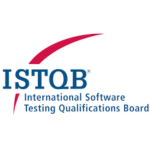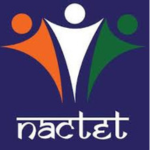Master Data Skills with Our Leading Data Science Course
Data Science Course in Kochi
Comprehensive Curriculum
Gain in-depth, structured knowledge in data science.
Career-Focused Learning
Master the skills to work on real-time projects and challenges.
Certification Advantage
Earn a Data Science Certification to enhance your career prospects.
Placement Support
Secure exciting roles in top companies with our dedicated placement assistance.
Your Path to Data Science Mastery Begins Now
Data science is pivotal in driving growth and innovation in today’s business landscape. Becoming a certified data scientist is your gateway to being an indispensable asset to leading companies. STC Technologies offers the best Data Science Course in Kochi to help you build a thriving career in this high-demand field.
Our program is tailored for freshers and graduates, even those without an IT background, making it accessible to anyone eager to enter the world of data science. The curriculum is carefully crafted to cover industry-relevant topics and equip you with the practical skills needed to excel in real-world scenarios.
Course Details
Duration– 3 Months Offline classroom
Syllabus
- Introduction to Data Science
- What is Data Science?
- Importance and applications of Data Science
- Types of Data Science (Descriptive, Diagnostic, Predictive, and Prescriptive)
- The data Science lifecycle
- Principles of Data Visualization
- Understanding Data and Insights
- Types of Data Visualizations and Their Use
- Tools for Data Visualization
- Excel, Power BI, Tableau for Visualization
- Design Best Practices
- Storytelling with Data
- Effective Dashboards and Reports
- Interactive Visualizations
- Embedding Visualizations into Websites
- Interactive Dashboards (Power BI/Tableau)
- Introduction to Python Programming
- Python Basics: Variables, Data Types, Operators
- Control Structures: Conditional Statements,
Loops - Data Structures and Functions
- Lists, Tuples, Dictionaries, Sets
- Functions and Lambda Expressions Libraries for
Data Science - NumPy for Numerical Computing
- Pandas for Data Manipulation
- Matplotlib and Seaborn for Visualization
- Working with Files
- Handling CSV, Excel Files
- Introduction to Data Analysis with Python
- Data Cleaning and Transformation
- Exploratory Data Analysis (EDA)
- Basic Machine Learning with Python
- Supervised vs Unsupervised Learning
- Data Understanding
- Data Cleaning
- Descriptive Statistics
- Data Visualization
- Correlation Analysis
- Feature Engineering
- Outlier Detection
- Distribution Analysis
- Hypothesis Testing
- Data Insights and Business Understanding
- Data Collection Methods
- Surveys,Interviews, Observations
- Data Quality and Integrity
- Ensuring Accuracy, Completeness, and Consistency
- Handling Missing Data
- Data Collection Tools
- Data Exploration:
- Descriptive Statistics (mean, median, mode, standard
deviation) - Data Distribution (histograms, box plots)
- Handling Missing Data:
- Imputation (mean, median, mode)
- Removal of Missing Data
- Forward and Backward Filling
- Handling Outliers:
- Identifying Outliers (IQR, Z-score method)
- Treating Outliers (removal, transformation)
- Data Transformation:
- Normalization and Standardization
- Log Transformation
- Scaling Techniques (Min-Max Scaling, Z-Score Scaling)
- Feature Engineering:
- Creating New Features from Existing Data
- Feature Encoding (One-Hot Encoding, Label
Encoding) - Polynomial Features
- Data Integration:
- Merging Data from Multiple Sources
- Joining and Concatenation
- Data Type Conversion:
- Converting Categorical to Numerical Data
- Handling Date and Time Variables
- Dealing with Duplicates:
- Identifying and Removing Duplicates
- Data Quality Assessment:
- Ensuring Consistency, Completeness, and Accuracy
- Linear Algebra
- Calculus
- Probability Theory
- Discrete Mathematics
- Descriptive Statistics
- Probability Distributions
- Regression Analysis
- Correlation and Covariance
- Statistical Modeling and Evaluation
- K-Means Clustering
- Decision Trees
- Naive Bayes
- K-Nearest Neighbors (KNN)
- Support Vector Machines (SVM)
- Logistic Regression
- Random Forest
- Linear Regression
- Introduction to Machine Learning
- Types of Machine Learning
- Supervised Learning Algorithms
- Linear Regression, Logistic Regression
- Decision Trees, Random Forests
- K -Nearest Neighbors (k-NN), Support vector
- Machines (SVM)
- Unsupervised Learning Algorithms
- Clustering: K-Means, Hierarchical Clustering
- Dimensionality Reduction: PCA
- Model Evaluation
- Cross-Validation, Bias-Variance Tradeoff
- Performance Metrics: Accuracy, Precision, Recall, F1
Score
- SQL Basics
- Introduction to Databases
- SELECT Queries, WHERE Clause, Sorting Data
- Advanced SQL Queries
- Joins: INNER JOIN, LEFT JOIN, RIGHT JOIN, FULL
OUTER JOIN - Grouping and Aggregations: GROUP BY, HAVING
- Sub queries and Nested Queries
- Using Sub queries for Data Extraction
- SQL Functions and Operators
- String Functions, Date Functions, Mathematical
Functions - Database Design and Normalization
- Understanding Keys: Primary, Foreign, Composite
- Normal Forms and Data Integrity
- SQL Performance Optimization
- Indexing
- Query Optimization Techniques
- Basic Formulas
- Advanced Formulas
- Pivot Tables
- Introduction to Power BI
- Overview and Setup
- Data Loading and Data Types
- Data Transformation with Power Query
- Importing Data from Multiple Sources
- Cleaning and Shaping Data
- Creating Relationships
- Creating Interactive Reports and Dashboards
- Visualizations: Bar Charts, Line Graphs, Maps, etc.
- Slicers and Filters
- Drill-through Reports
- DAX (Data Analysis Expressions)
- Basic DAX Formulas
- Calculated Columns and Measures
- ime Intelligence in DAX
- Power BI Service
- Publishing Reports and Sharing Dashboards
- Collaborating and Sharing Insights
- Creating KPI Dashboards
- Real-time Science
- Introduction to Tableau
- Installation and Interface Overview
- Connecting to Data Sources
- Data Preparation and Transformation
- Data Cleaning and Shaping in Tableau
- Handling Missing Data
- Building Basic Visualizations
- Types of Charts: Bar, Line, Pie, Scatter Plots, etc.
- Filters, Parameters, and Sets
- Dashboards in Tableau
- Creating Interactive Dashboard
- Actions and Navigation in Dashboards
- Sharing and Publishing Tableau Workbooks
- Tableau Public and Tableau Server/Online
- Introduction to Deep Learning
- Overview of Artificial Intelligence (AI), Machine
Learning (ML), and Deep Learning (DL) - Difference between Traditional Machine Learning
and Deep Learning - Applications of Deep Learning (e.g., image
recognition, natural language processing,
autonomous driving) - Neural Networks Fundamentals
- What is a Neural Network?
- Structure of a Neural Network: Neurons, Layers
(Input, Hidden, Output) - Activation Functions (Sigmoid, ReLU, Tanh, Softmax)
- Feed forward Neural Networks (FNN)
- Training a Neural Network: Forward Propagation and
Backpropagation - Types of Neural Networks
- Perceptron: Basic neural network structure
- Multilayer Perceptron (MLP): Deep neural networks
with multiple layers - Convolutional Neural Networks (CNN): Image
processing and computer vision - Recurrent Neural Networks (RNN): Sequence data
processing (time-series, text, speech) - Long Short-Term Memory (LSTM): Advanced RNNs
for handling long-term dependencies - Generative Adversarial Networks (GAN): Generating
new data through adversarial training - Training Deep Learning Models
- Data Preprocessing: Normalization, Scaling, Data
Augmentation - Splitting Data: Training, Validation, and Test Sets
- Cross-Validation and Hyper parameter Tuning
- Model Evaluation Metrics: Accuracy, Precision, Recall,
F1-Score - Deep Learning Frameworks and Libraries
- Introduction to Popular Deep Learning Libraries:
Tensor Flow, Keras, PyTorch - How to use these libraries for building and training
models - Implementing a simple neural network with Keras or
Tensor Flow
- Introduction to Recommendation Systems
- Collaborative Filtering
- Content-Based Filtering
- Deep Learning in Recommendation Systems
- Introduction to Artificial Intelligence
- AI vs. Machine Learning vs. Deep Learning
- Applications of AI in Various Fields
- AI Ethics and Challenges
- Computer Vision
- Image Processing Fundamentals
- Image Classification and Object Detection
- Convolutional Neural Networks (CNN)
- Transfer Learning in Computer Vision
- Natural Language Processing (NLP)
- Sentiment Analysis, Topic Modeling
- Sequence-to-Sequence Models
- Deep Learning Architectures
- Convolutional Neural Networks (CNN)
- Recurrent Neural Networks (RNN)
- Long Short-Term Memory (LSTM)
- Auto encoders
- Generative Adversarial Networks (GANs)
- Transformer Models
- Introduction to Supervised Learning
- Types of Supervised Learning
- Data Preprocessing
- Model Evaluation Metrics
- Classification Algorithms
- Regression Algorithms
- Random Forests
- Model Tuning and Optimization
- Neural Networks for Supervised Learning
- Practical Implementation
- Introduction to Computer Vision
- Applications of Computer Vision
- Tools and Libraries
- Deep Learning Frameworks
Our Specialities
Top recommended courses based on Industry demand and recent Placement statistics.
Strengthen confidence, communication, and professionalism for career growth.
Our students Works at
Placements we Offer


































Testimonials

Akhil T Ravi, IBS Software, Technopark
” STC teaches according to the current industry standards. They are helping even after course completion until we get a satisfied job. If you wish to have a carrier in software testing or software training, then choosing STC to learn will be a good opinion you can take “.

Sugesh C H, Qa lead analyst at IQVIA, Technopark
” It was a great pleasure being with STC. Excellent skills and high quality professionalism of this team had helped me to get software testing job. STC is actually a good institute to learn different software training courses. “

Nabeena shamsudheen, TCS, Infopark
” Our mentors were brilliant and we were given more help that we knew we needed. They had advised us throughout and helped me to achieve my dreams. I strongly recommend STC software testing and other software training courses to secure your future. “
Enroll now in the Best Data Science Course in Kerala
Don’t miss your chance to elevate your career. Enroll today in the best Data Science Course in Kochi, Kerala and take the first step toward becoming a successful data scientist. Let STC Technologies help you achieve your dream career!






